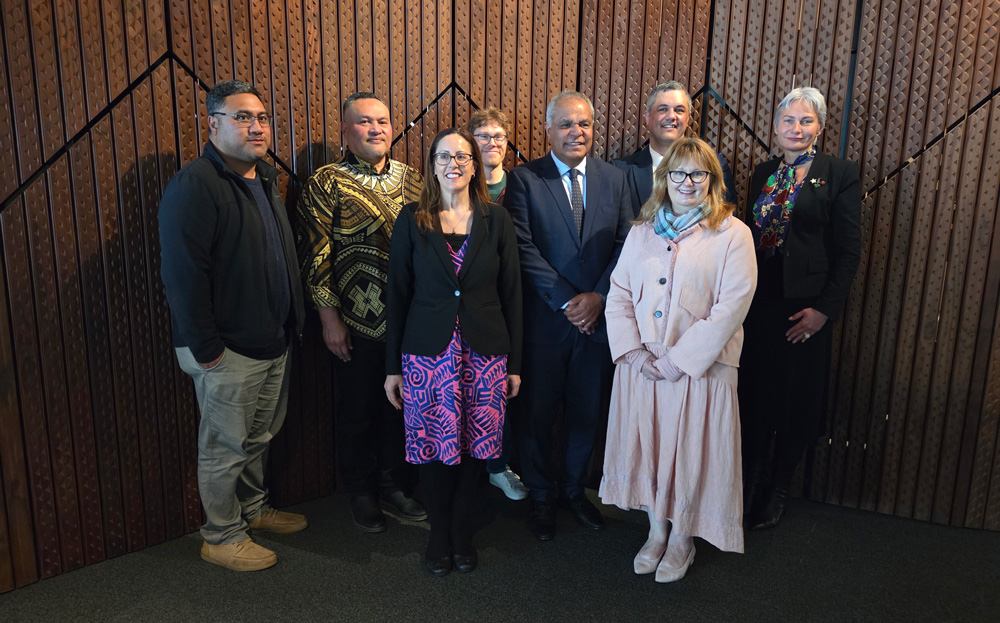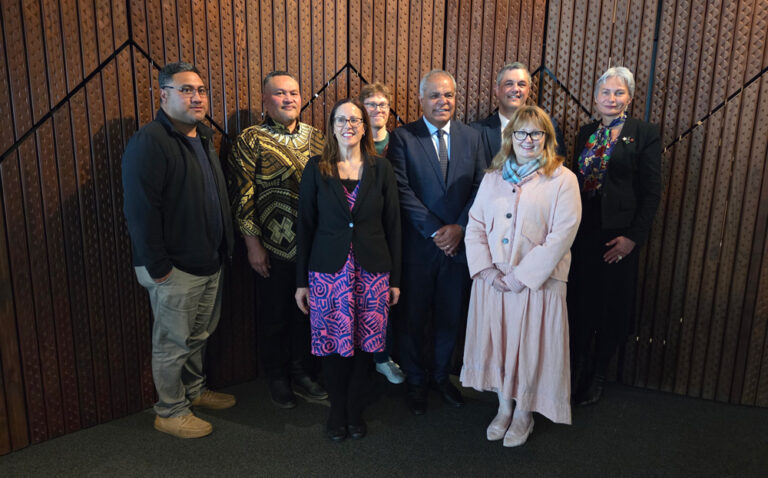Media Release Info
Home » Media Releases » Milestone Agreement Celebrates Data Collaboration to Support Pacific Whānau Ora
Previous Media Releases
Milestone Agreement Celebrates Data Collaboration to Support Pacific Whānau Ora
- Published September 24, 2025
- | 5:16 am

Image:
L-R: James Heimuli, Tātou Collective Strategy and Insights Manager; Su’a Tavaga Afelē Seuala – Tātou Collective Navigator Practice Lead for Whānau Ora; Leasiosiofa’asisina Rachel Enosa – Establishment Chief Executive of Tātou Collective; Caleb Stone – Data Broker Integrated Data Stats NZ; Leopino Foliaki – Chair of Tātou Collective; Paul Marshall – Te Puni Kōkiri Manager, Whānau Ora Delivery; Rachael Milicich, Deputy Chief Executive for Insights and Statistics at Stats NZ and Grace Smit, Deputy Secretary Regions at Te Puni Kōkiri.
Tātou Collective and Stats NZ have signed a new Whānau Ora Data Sharing Agreement on Monday. This is a significant step in strengthening the use of trusted data to support whānau wellbeing and outcomes across government.
Tātou Collective, the Whānau Ora Commissioning Agency for Pacific peoples across Aotearoa, has worked with Stats NZ to enable information collected through Whānau Ora Navigators to be securely integrated into Stats NZ’s Integrated Data Infrastructure (IDI). Once anonymised, this data can be linked with government datasets on health, education, housing, and social services, creating a fuller picture of the challenges and opportunities facing families.
By connecting whānau information with broader government data, Whānau Ora providers will be able to better customise services to actual needs. Policymakers will have clearer evidence to target resources where and when they’re needed. Importantly, Pacific families will be more visible in the evidence that drives government policy and investment decisions, while their privacy is fully protected through strong safeguards under the Data and Statistics Act 2022 and the Privacy Act 2020.
Leopino Foliaki, Chair of Tātou Collective, said the agreement represents a new phase in Whānau Ora’s ability to tell a strong performance story, demonstrating outcomes. “We see data as a foundation for better outcomes. This agreement reflects our shared commitment to making sure the voices and experiences of families are visible in the evidence that will inform policy, planning and frontline delivery.”
Grace Smit, Deputy Secretary Regions at Te Puni Kōkiri, said the collaboration reflects an important shift in how Whānau Ora is being supported. “Trusted data helps ensure whānau voices are heard and their aspirations are reflected in decisions that affect their lives. We are proud to support this collaboration as it creates better opportunities for whānau to thrive.”
Rachael Milicich, Deputy Chief Executive for Insights and Statistics at Stats NZ, added that the use of anonymised data through the IDI will strengthen understanding across government. “Making use of linked anonymised data through the IDI will help government collectively understand the lived realities of Pacific families better. That deeper, more connected understanding will help drive change where it matters most.”
The next phase of this work will involve producing insights that guide service delivery, policy, and investment decisions. Over time, findings will be made publicly available, ensuring greater transparency and accountability. This agreement is about more than data, it is about ensuring whānau who often feel ‘invisible’ in the system, have a stronger voice that can inform the services and policies that affect their everyday lives.
The Integrated Data Infrastructure (IDI) is a secure research database managed by Stats NZ. It holds de-identified information about people and households, drawn from across government agencies and surveys. By safely linking data on areas like health, education, income and social services, then removing identifying details, the IDI helps researchers and policymakers see how different factors connect in people’s lives while protecting privacy.

